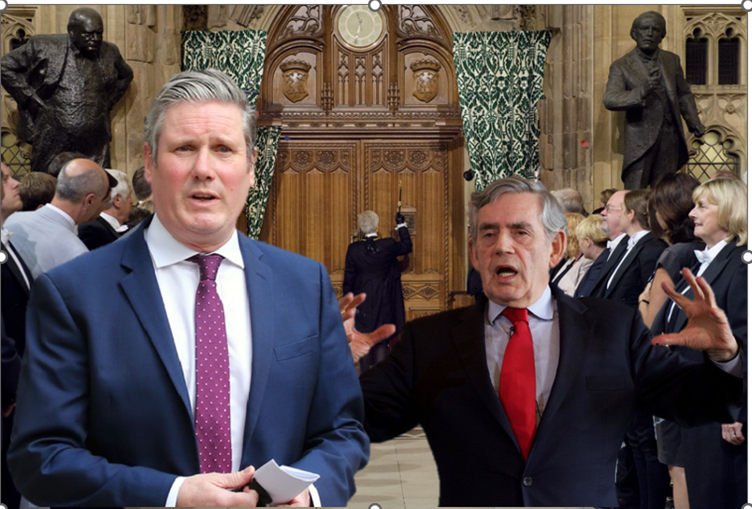Starmer and Brown open doors to reform Britain

Our opportunity top change Britain for good
Labour aims to devolve power and improve the way Britain is run, based on proposals from the Commission on the UK’s Future led by Gordon Brown. The Party will consult on proposals for its manifesto in the election due in 2024, so that it can bring about change as soon as possible. But even if Labour wins a big majority and is determined to act, events and opposition from the Lords, press and pressure groups could prevent anything from happening.
A political party with a majority in parliament has a lot of power to change the constitution. But if it is divided over details – as over Brexit after 2016 or House of Lords reform in 2012 – the opportunity will be lost.
Anyone who believes Britain’s constitution needs to change should therefore help to build a movement for reform and engage with the Labour party’s proposals during 2023. Even if you believe Scotland should become an independent country, Northern Ireland should join the Republic or Wales should be self-governing, this opportunity to develop a more responsive system of government will be better than the current mess.
Whatever we think of Labour, this is our best hope to change our political system, which will in turn create opportunities for further change. It is easy to blow this opportunity, so we need to be disciplined. We have less than a year to influence what goes into the manifesto – about six months to build as broad a movement as possible and develop priorities for reform as well as a B-list of desirables. Then a few months to campaign for them to be included in the manifestos of as many parties as possible, then continuing to lobby and campaign after the election to ensure that they are implemented effectively. Then we can use these changes to deepen public participation in decision-making to make Britain a better place.
How to create a People’s Plan for Democracy
Brown’s 150-page report makes a lot of good points and sets out 40 proposals but leaves out key issues such as the voting system. I have written a summary of Brown’s proposals, with an outline strategy to create a ‘people’s plan for democracy’, which you can read and comment on here: https://bit.ly/Plan4Democracy –
The main point is that many people are working on policies to improve the way Britain is run, with proposals for all aspects of our democracy. The challenge is to get these into a legislative programme that will be adopted and implemented by a government with a majority in Parliament and support in the country.
This requires:
1. A broad coalition of organisations with a small steering group to lead it.
2. Local events to involve people in agreeing priorities and getting support from MPs, trade unions, civil society groups, press and public. My “Network accelerator” process is one way to support a UK-wide programme of locally run roadshows.
3. A social media and press campaign to get supporters and donations.
4. A declaration or charter launched by high-profile signatories.
5. An online platform where people can vote or comment on proposals.
6. Working groups to collate and develop proposals into actionable form.
7. Funding from supporters and funders.
8. A host organisation and staff to run the campaign.
9. Work with politicians, advisers and others who will shape the legislation
10. A plan of action with resources and a timetable.
Timetable: start early 2023, run local events and online poll until 30 July, agree ‘people’s plan for democracy’ to launch on 15 September (International Day of Democracy), build support and lobby Labour until and after the election.
I hope the recently formed Democracy Network will lead this campaign, in partnership with other democratic organisations including Cooperatives UK, Compass, Citizens UK, Locality, NAVCA, the LGA, NALC, New Local, trade unions, Workers Educational Association, Women’s Institute and other organisations with a presence on the ground.
For a draft declaration or charter to start with, see https://bit.ly/Plan4Democracy.



